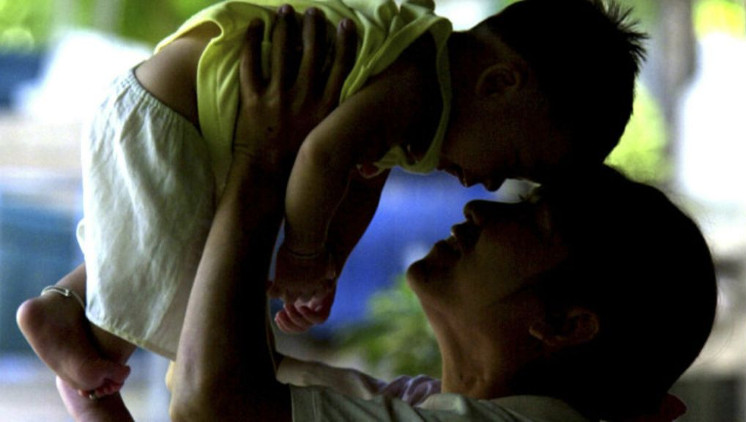Thailand - the first country in Asia to prevent HIV transmission from mother to child
The Thai government's determination has shown its position in the future.
Last June, Thailand became the first Asian country to prevent HIV transmission from mother to child . But until now, a new study has been published in Paediatrics and International Child Health to analyze their success.
The author is a scientist from the University of Chulalongkorn University, Bangkok. They shared the secrets, helping Thailand reduce very high rates of mother-to-child HIV transmission: 20-40% in the mid-1990s to 1.9% in 2015.
When the rate of mother-to-child HIV transmission is less than 2%, the World Health Organization (WHO) standard will recognize a country that successfully prevented this path of infection.

Thailand has many successful initiatives and communication campaigns on HIV / AIDS.
The study authors analyzed: Thailand successfully prevented mother-to-child transmission of HIV mainly thanks to the very good implementation of WHO's strategic guidelines. These strategies focus on four legs:
- Prevent HIV infection for women of childbearing age
- Preventing unwanted pregnancy in women living with HIV
- Prevention of mother-to-child transmission of HIV in HIV-infected pregnant women
- Provide appropriate treatment, medical care and support for women and children living with HIV
Moreover, one key point is that Thailand implemented these strategies early on , with the government's fierce involvement expressed by: policy commitments, strong public investment, coordination among industry, levels and society.
Since the 1990s, Thailand has had many successful initiatives and communication campaigns on HIV / AIDS. Campaigns aimed at encouraging people to use condoms, providing information about the risk of transmission and referral testing for pregnant and postpartum women.
For example, a typical campaign from the 1990s in Thailand was named 100% Condom Program . It has always been the standard of many articles and international conferences on HIV / AIDS prevention in the world.
The success of such initiatives also stems in part from the government's strong determination. Since 1991, responsibility for national HIV / AIDS policies has been transferred directly from the Ministry of Health to the Thai Prime Minister's Office.
Government spending and investment with HIV / AIDS programs also increased sharply: From $ 684,000 in 1988 to $ 82 million in 1997.

The Thai government's determination to show its position in the future.
Success in providing prenatal care in Thailand is also an important key. The quality and proportion of women receiving these services are very high.
In the first visit, women can perform voluntary HIV testing, with results available within the day. At the next follow-up visit during pregnancy, women continue to be tested for HIV again.
If the result is positive, the pregnant mother infected with HIV will be provided with antiretroviral treatment (ARV) immediately. A change in law has promoted the production of non-commercial HIV drugs. Therefore, the cost of treatment today is much lower.
Counseling services at antenatal clinics also play a role, promoting the use of double birth control methods for women with HIV. As a result, Thailand has significantly prevented the rate of unwanted HIV pregnancies.
The author of the study, Professor Usa Thisyakorn shared: "Thailand has achieved WHO's goal of eliminating mother-to-child transmission of HIV infection, with early coordination efforts of all sectors, level and society ".
The lesson from that combination will become a learning experience for many other countries. She said: "Children are the future of the country. So, the way a country deals with threats to young people, will show its strength and position in the future."
- Thailand becomes the first Asian country to eliminate mother-to-child transmission of HIV
- Cuba - The first country to successfully prevent mother-to-child transmission of HIV
- False nipples prevent mother-to-child transmission of HIV
- Care and treatment for babies born to mothers with HIV / AIDS
- Cuba successfully abolished mother-to-child HIV infection
- Found the Zika pathway transmitted from mother to child
- In what ways is HIV transmitted?
- Debate about children created by three people
- Successful breeding babies have 3 parents
- The fetus is also sticky
- Cancer can be transferred from people?
- I am close to my mother so I have a nice love when I am big
 Green tea cleans teeth better than mouthwash?
Green tea cleans teeth better than mouthwash? Death kiss: This is why you should not let anyone kiss your baby's lips
Death kiss: This is why you should not let anyone kiss your baby's lips What is salmonellosis?
What is salmonellosis? Caution should be exercised when using aloe vera through eating and drinking
Caution should be exercised when using aloe vera through eating and drinking